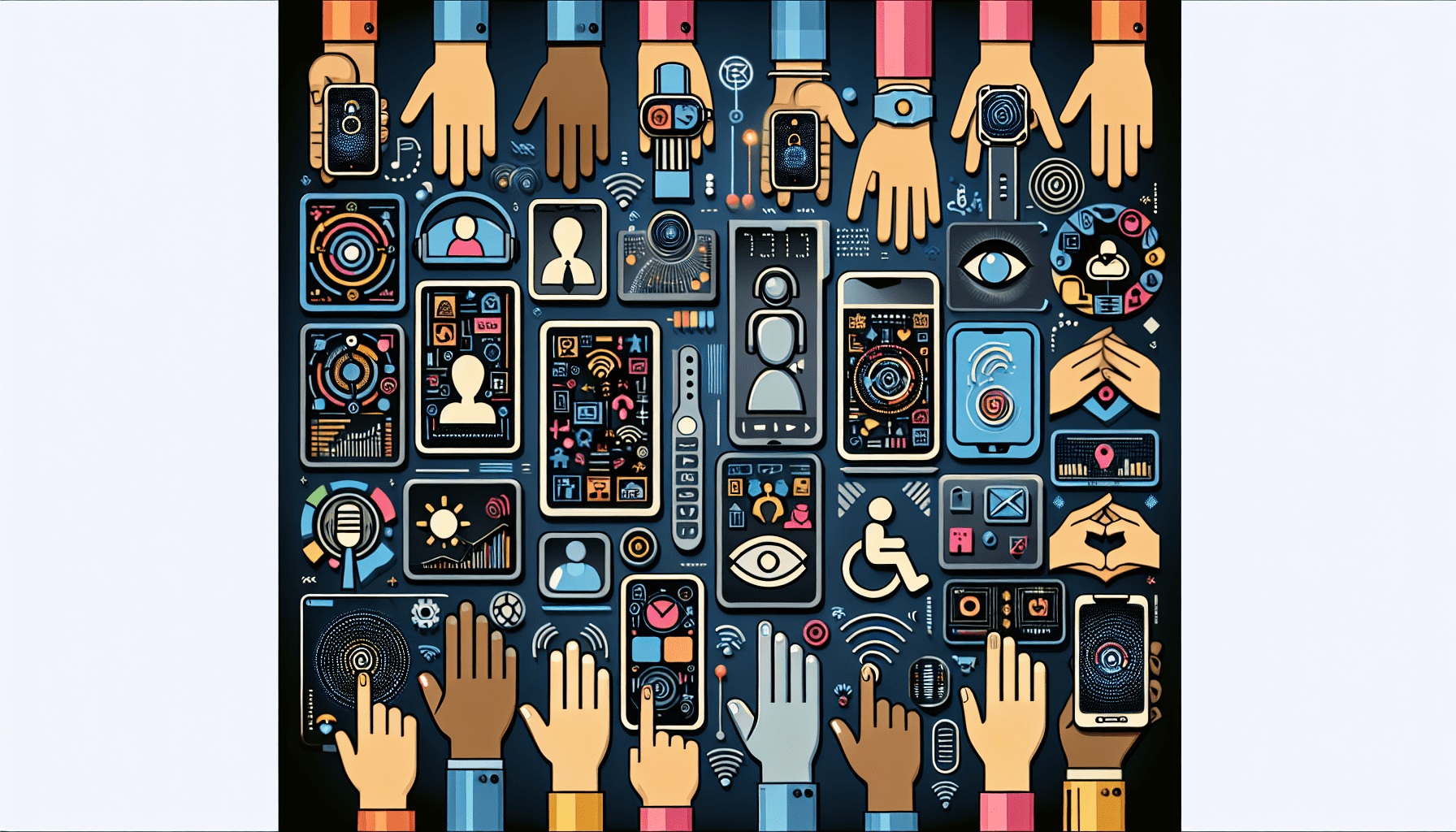Imagine a world where healthcare is more accessible, personalized, and efficient. This is the potential that virtual assistants hold in the field of healthcare. Virtual assistants, powered by artificial intelligence, have the capability to revolutionize the way we interact with healthcare systems and providers. From assisting doctors in diagnosing illnesses to guiding patients through their healthcare journey, these digital helpers have a wide range of applications. However, with great potential comes great challenges. In this article, we will explore the various applications of virtual assistants in healthcare and the hurdles they face in realizing their full potential. So, sit back, relax, and let’s embark on an exciting journey into the world of virtual assistants in healthcare.
Virtual Assistants in Healthcare: Applications and Challenges

This image is property of pixabay.com.
Introduction
Virtual assistants have become increasingly prevalent in various industries, and healthcare is no exception. These AI-powered assistants have the potential to revolutionize the way healthcare institutions operate and deliver services. From assisting with patient education and support to streamlining electronic health records, virtual assistants offer a wide range of applications that can greatly benefit both healthcare professionals and patients. However, implementing virtual assistants in healthcare also comes with its fair share of challenges, including data security concerns and technological limitations. In this article, we will explore the applications of virtual assistants in healthcare and the challenges associated with their implementation.
Applications of Virtual Assistants in Healthcare
Assisting with Patient Education and Support
One of the key applications of virtual assistants in healthcare is the ability to assist with patient education and support. These assistants can provide valuable information about medical conditions, treatment options, and lifestyle recommendations. By engaging in interactive conversations, virtual assistants can promote health literacy and empower patients to make informed decisions about their health.
Improving Appointment Scheduling and Reminders
Appointment scheduling and reminders are crucial for efficient healthcare operations. Virtual assistants can streamline the booking process by offering convenient online scheduling options. They can also send automated reminders to patients, reducing the likelihood of missed appointments. Furthermore, integration with calendar apps allows for seamless management of appointments.
Enhancing Telemedicine Services
Telemedicine has gained significant traction in recent years, and virtual assistants play a vital role in enhancing its services. They can conduct virtual consultations, assist with remote diagnoses, and facilitate prescription refills. By eliminating geographical barriers, virtual assistants enable patients to access healthcare services from the comfort of their homes.
Streamlining Electronic Health Records (EHR)
Managing electronic health records (EHR) can often be a time-consuming and complex task. Virtual assistants can simplify this process by extracting relevant information from EHR, automating documentation and note-taking, and organizing and summarizing patient records. This not only saves time for healthcare professionals but also improves data accuracy and completeness.
Providing Medication Management and Reminders
Medication adherence is a significant challenge in healthcare. Virtual assistants can play a crucial role in helping patients manage their medications effectively. They can send reminders for medication intake, provide information about potential side effects, and even assist in pill identification through in-app features. By promoting adherence, virtual assistants contribute to better healthcare outcomes.
Supporting Mental Health and Therapy
Mental health and therapy are areas where virtual assistants can provide valuable support. These assistants can deliver supportive chat-based services, assist with cognitive-behavioral therapy techniques, offer mindfulness and relaxation exercises, and provide crisis intervention and suicide prevention services. Virtual assistants in mental healthcare aim to alleviate the burden on mental health professionals and ensure timely support for patients.
Facilitating Remote Patient Monitoring
Virtual assistants can also facilitate remote patient monitoring, which is especially beneficial for individuals with chronic conditions. These assistants can collect vital signs, track symptoms, and provide patients with personalized feedback and recommendations. By enabling remote monitoring, virtual assistants enhance patient care and reduce the need for frequent hospital visits.
Assisting with Language Translation and Interpretation
In an increasingly diverse healthcare landscape, language barriers can pose significant challenges. Virtual assistants equipped with language translation and interpretation capabilities can bridge this gap. They can facilitate communication between patients and healthcare providers who do not share a common language, enhancing the quality and accessibility of healthcare services.
Enhancing Clinical Decision Support
Clinical decision-making is a complex process requiring access to up-to-date and evidence-based information. Virtual assistants can assist healthcare professionals by providing relevant and timely clinical decision support. They can offer information on drug interactions, treatment guidelines, and diagnostic recommendations, thereby aiding in accurate and efficient decision-making.
Improving Health Research and Data Analysis
Virtual assistants have immense potential in improving health research and data analysis. They can analyze vast amounts of healthcare data, identify trends and patterns, and extract valuable insights. This can help researchers and policymakers in making informed decisions and advancing medical knowledge.
Challenges in Implementing Virtual Assistants in Healthcare
Ensuring Data Security and Privacy
One of the primary concerns surrounding the implementation of virtual assistants in healthcare is data security and privacy. As virtual assistants collect and process sensitive patient information, strict measures must be in place to ensure the confidentiality and protection of this data. Robust encryption protocols, secure storage systems, and compliance with relevant regulations are essential to address this challenge.
Maintaining Trust and User Acceptance
For virtual assistants to be effective in healthcare settings, it is crucial to gain and maintain the trust and acceptance of both healthcare professionals and patients. This involves transparently communicating the capabilities and limitations of the virtual assistant, addressing concerns regarding data privacy, and delivering accurate and reliable information consistently. Building trust is an ongoing process that requires open communication and continuous improvement.
Addressing Ethical and Legal Concerns
The use of virtual assistants in healthcare raises ethical and legal concerns that need to be addressed. These concerns include the impact on patient autonomy, the potential for bias in decision-making algorithms, and the responsibility of virtual assistants in case of adverse outcomes. A comprehensive framework that addresses these ethical and legal concerns is vital to ensure responsible and ethical use of virtual assistants in healthcare.
Navigating Regulatory and Compliance Issues
Healthcare is a highly regulated industry, and implementing virtual assistants requires navigating complex regulatory and compliance frameworks. Virtual assistants must comply with data protection laws, health information privacy regulations, and industry-specific standards. Adhering to these regulations while maintaining functionality and usability is an ongoing challenge that requires collaboration between technology developers and healthcare institutions.
Overcoming Technological Limitations
Virtual assistants in healthcare heavily rely on technology, and overcoming technological limitations is essential for their successful implementation. These limitations include natural language processing (NLP) accuracy, voice recognition capabilities, and integration capabilities with existing healthcare systems. Continuous advancements in technology and close collaboration between technology developers and healthcare experts are crucial to overcome these limitations.
Dealing with Language and Cultural Barriers
In a multicultural healthcare environment, language and cultural barriers can affect the effectiveness of virtual assistants. Virtual assistants must be capable of understanding and interpreting diverse linguistic and cultural nuances accurately. Developing robust language models and culturally sensitive algorithms can address this challenge and ensure that virtual assistants can cater to the needs of a diverse patient population.
Establishing Reliable Natural Language Processing (NLP)
Natural Language Processing (NLP) forms the backbone of virtual assistants’ ability to communicate effectively with users. Developing reliable NLP algorithms that understand user queries accurately is a challenge that requires continuous research and improvement. Training virtual assistants on a diverse set of healthcare-related queries and providing them with access to a comprehensive medical knowledge base enhances their NLP capabilities.
Ensuring Effective Integration with Existing Systems
To maximize the benefits of virtual assistants in healthcare, it is crucial to ensure their effective integration with existing systems, such as electronic health records (EHR) and appointment scheduling platforms. Seamless data exchange and interoperability between virtual assistants and existing systems enable efficient workflows and improve overall healthcare operations. Developing standardized interfaces and protocols promotes integration and reduces implementation challenges.
Managing Integration with Human Workforce
Virtual assistants are designed to complement and assist healthcare professionals, not replace them. Managing the integration of virtual assistants with the existing human workforce requires careful consideration. Clear communication of roles and responsibilities, adequate training, and ongoing support are essential to ensure a smooth transition and collaboration between virtual assistants and healthcare professionals.
Addressing User Training and Support Needs
Virtual assistants can only be effective if users are adequately trained on their functionalities and provided with ongoing support. Offering onboarding and tutorials to users ensures that they are familiar with the virtual assistant’s capabilities. Continuous technical support and regular updates enhance user experience and address any usability concerns. User feedback and engagement play a crucial role in improving virtual assistants’ performance and meeting the evolving needs of healthcare professionals and patients.
Assisting with Patient Education and Support
Improving Health Literacy
Virtual assistants play a vital role in improving health literacy by providing accessible and understandable health information to patients. They can explain medical terminologies in plain language, simplify complex concepts, and address specific patient concerns. By increasing health literacy, virtual assistants empower patients to actively participate in their healthcare journey.
Providing Personalized Health Information
Every patient is unique, and virtual assistants can provide personalized health information based on individual needs and preferences. By analyzing patient data and understanding their specific conditions, virtual assistants can offer tailored recommendations and advice. This personalized approach enhances the patient experience and facilitates better health outcomes.
Answering Frequently Asked Questions
Virtual assistants can assist in answering frequently asked questions, saving both patients and healthcare professionals valuable time. From providing information about common symptoms to explaining the side effects of medications, virtual assistants serve as a reliable source of information for patients. By addressing common queries, virtual assistants alleviate the burden on healthcare professionals and enhance overall patient satisfaction.
Promoting Healthy Lifestyle Choices
Virtual assistants can promote healthy lifestyle choices by offering guidance on diet, exercise, and preventive measures. They can provide personalized recommendations based on patients’ health conditions and specific goals. By encouraging healthier habits, virtual assistants contribute to disease prevention and overall well-being.
Offering Emotional Support and Encouragement
Virtual assistants can also provide emotional support and encouragement to patients in need. Through empathetic conversations and active listening, they can offer reassurance, comfort, and encouragement. For patients dealing with chronic conditions or mental health issues, virtual assistants can serve as a consistent source of support, promoting emotional well-being.

This image is property of pixabay.com.
Improving Appointment Scheduling and Reminders
Streamlining Appointment Booking Process
Virtual assistants streamline the appointment booking process by offering convenient and user-friendly online scheduling options. Patients can easily check availability, choose preferred time slots, and book appointments without the need for phone calls or waiting on hold. This streamlining of the process saves time for both patients and healthcare staff.
Sending Automated Reminders
Missed appointments can disrupt healthcare operations and lead to delays in patient care. Virtual assistants can send automated reminders to patients, reducing the likelihood of no-shows. These reminders can be personalized to each patient’s preferred communication channel, such as text messages or email, ensuring effective communication and increasing appointment attendance.
Allowing Online Rescheduling and Cancellations
Last-minute schedule changes can be inevitable for patients. Virtual assistants can allow patients to reschedule or cancel appointments online, providing flexibility and convenience. By offering this feature, virtual assistants simplify the process for patients and help healthcare institutions manage their schedules more effectively.
Integrating with Calendar Apps for Convenience
Virtual assistants can seamlessly integrate with popular calendar apps, such as Google Calendar or Microsoft Outlook. By syncing appointment details, virtual assistants ensure that patients have their appointments readily accessible and can provide reminders directly within the user’s preferred calendar app. This integration enhances convenience and reduces the chances of missed appointments.
Enhancing Telemedicine Services
Conducting Virtual Consultations
Virtual consultations have become increasingly popular, especially in situations where in-person visits are not feasible or necessary. Virtual assistants can facilitate virtual consultations by scheduling appointments, providing video conferencing capabilities, and organizing relevant medical records. By enabling virtual consultations, virtual assistants enable timely access to healthcare professionals and increase convenience for patients.
Assisting with Remote Diagnoses
Virtual assistants can assist in remote diagnoses by gathering relevant symptoms and medical history from patients. They can guide patients through self-assessment tools, collect essential information, and provide preliminary assessments to healthcare professionals. This assistance streamlines the diagnostic process and enables more efficient healthcare delivery.
Facilitating Prescription Refills
Continuous medication management is crucial for patients, and virtual assistants can play a role in facilitating prescription refills. By working seamlessly with healthcare providers and pharmacies, virtual assistants can assist patients in requesting and renewing prescriptions. This feature ensures that patients have access to necessary medications without unnecessary delays or disruptions.
Simplifying Follow-up Care
Follow-up care is essential for patients recovering from procedures or managing chronic conditions. Virtual assistants can simplify the process by sending reminders for follow-up appointments, providing educational materials, and monitoring symptoms. By offering ongoing support and guidance, virtual assistants contribute to improved patient outcomes and enhance the overall quality of care.

This image is property of pixabay.com.
Streamlining Electronic Health Records (EHR)
Extracting Relevant Information from EHR
Virtual assistants can extract relevant information from electronic health records (EHR) efficiently. They can search and retrieve specific data, such as lab results, medical histories, and medication lists, eliminating the need for healthcare professionals to manually access and navigate EHR systems. This saves time and enables healthcare professionals to focus on patient care.
Automating Documentation and Note Taking
Documenting patient encounters and taking notes during appointments can be time-consuming for healthcare professionals. Virtual assistants can automate this process by recording and summarizing key information from conversations. These automated documentation features reduce administrative burdens, improve accuracy, and enable healthcare professionals to provide more comprehensive care.
Organizing and Summarizing Patient Records
Virtual assistants can organize and summarize patient records, making it easier for healthcare professionals to review and analyze relevant information. By categorizing and presenting data in a concise format, virtual assistants enhance the accessibility of patient records. This feature enables healthcare professionals to make informed decisions and deliver personalized care efficiently.
Improving Data Accuracy and Completeness
Manual data entry can lead to errors and incomplete information in patient records. Virtual assistants can assist in improving data accuracy and completeness by automatically populating relevant fields and verifying information against standardized databases. This ensures that patient records are up-to-date, reliable, and facilitate better healthcare decision-making.
Providing Medication Management and Reminders
Sending Medication Reminders
Medication adherence is critical for effective treatment outcomes, especially for patients with chronic conditions. Virtual assistants can send medication reminders to patients at designated times, ensuring that they take their medications as prescribed. These reminders can be customized based on the patient’s medication schedule, ensuring personalized support.
Assisting with Medication Adherence
In addition to sending reminders, virtual assistants can assist patients in adhering to their medication regimen. They can provide information about the purpose and potential side effects of medications, offer tips for proper administration, and address any concerns or questions patients may have. This assistance fosters medication adherence and contributes to better patient outcomes.
Providing Information about Side Effects
Medications often come with potential side effects, and patients may have concerns or questions about these effects. Virtual assistants can provide personalized information about specific medications, including common side effects, their severity, and recommended actions. By offering this information, virtual assistants empower patients to make informed decisions about their healthcare.
Offering In-app Pill Identification
For patients with multiple medications, it can be challenging to identify each pill accurately. Virtual assistants can offer in-app pill identification features by analyzing pictures or descriptions of pills. This functionality helps patients ensure they are taking the correct medication, reducing the risk of medication errors.

Supporting Mental Health and Therapy
Delivering Supportive Chat-based Services
Virtual assistants can deliver supportive chat-based services for individuals seeking mental health support. By engaging in empathetic conversations, virtual assistants can provide emotional support, listen actively, and offer suggestions for coping strategies. These features can be particularly beneficial for individuals who may find it challenging to access traditional mental health services.
Assisting with Cognitive Behavioral Therapy
Cognitive-behavioral therapy (CBT) is a widely recognized intervention for mental health conditions. Virtual assistants can guide individuals through CBT techniques, such as cognitive restructuring or exposure therapy. They can offer step-by-step instructions, provide relevant resources and exercises, and track progress. This assistance enhances accessibility to evidence-based therapeutic techniques.
Offering Mindfulness and Relaxation Techniques
Virtual assistants can guide individuals through mindfulness and relaxation techniques, promoting stress reduction and overall well-being. They can provide instructions for breathing exercises, guided meditations, or progressive muscle relaxation. By delivering these techniques on-demand, virtual assistants help individuals manage their stress and improve their mental health.
Providing Crisis Intervention and Suicide Prevention
For individuals experiencing a mental health crisis, immediate support is critical. Virtual assistants can provide crisis intervention services, including assessing the severity of the crisis, offering coping strategies, and guiding individuals to appropriate resources. Virtual assistants can also identify signs of suicidal ideation and provide guidance on how to seek help in such situations.
Addressing User Training and Support Needs
Providing Onboarding and Tutorials
To ensure user familiarity with virtual assistants, it is crucial to provide adequate onboarding and tutorials. Virtual assistants can guide users through initial setup, demonstrate key features and functionalities, and address common queries. By offering onboarding support, virtual assistants help users make the most of the available features and enhance their overall experience.
Ensuring User Familiarity with Virtual Assistants
Virtual assistants may be new to some users, requiring additional support to become comfortable with their capabilities. Virtual assistants can provide guidance and suggestions during interactions to help users better understand their scope and limitations. By ensuring user familiarity, virtual assistants can build trust and encourage users to utilize their full potential.
Offering Continuous Technical Support
Technical issues can arise during the use of virtual assistants, and providing continuous technical support is essential. Virtual assistants can offer troubleshooting assistance, provide guidance on resolving common issues, and direct users to appropriate channels for advanced technical support. This continuous support ensures that users can rely on virtual assistants without disruptions.
Improving User Experience through Updates and Enhancements
Virtual assistants continue to evolve, and regular updates and enhancements are essential to improve the user experience. These updates can introduce new features, address user feedback, and improve the overall performance and reliability of virtual assistants. By continuously enhancing the user experience, virtual assistants remain relevant and valuable tools in healthcare.
In conclusion, virtual assistants have the potential to revolutionize the healthcare industry by assisting with patient education and support, streamlining administrative tasks, and enhancing patient care. While the implementation of virtual assistants in healthcare brings numerous benefits, it also presents challenges that need to be addressed. From data security and privacy concerns to technological limitations, healthcare institutions must navigate these challenges to ensure responsible and effective use of virtual assistants. By understanding the applications and challenges associated with virtual assistants in healthcare, we can harness their potential and pave the way for a more efficient and patient-centric healthcare system.





